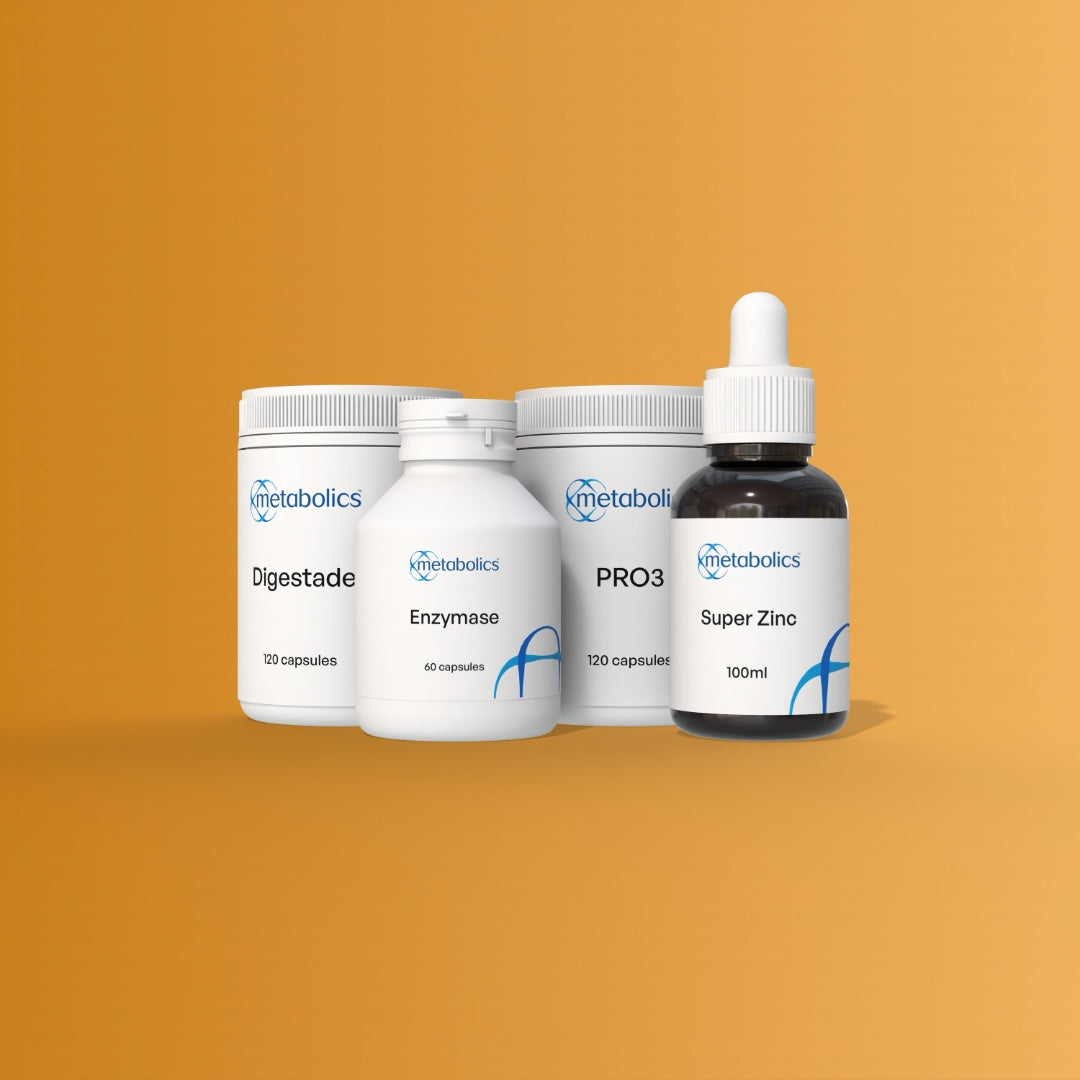90% of acid reflux cases are due to stomach acid being too low rather than too high.
Hypergastrinemia (excess stomach acid) is actually pretty rare and is generally caused by long term use of acid suppressant medications (antacids and proton pump inhibitors AKA PPIs), or an H.pylori infection. Certain health conditions, gastric blockage or surgery may also lead to excessive stomach acid levels.
Hypochlorydia (low stomach acid) however is incredibly common and will cause symptoms including:
- Heartburn
- A sensation of intense fullness soon after eating that persists for longer than it should
- Burping
- Nausea
- Bloating, gas and constipation
- Back pain
- Excess mucus, sinusitis or nasal congestion
- Having to regularly clear your throat
- A metallic taste in the mouth
- Frequent sore throats
Reflux Reset is designed to both relieve the symptoms listed above and rework the environment of the stomach, offering a long term and lasting solution to acid reflux.
How the stomach should actually work
Your stomach is an elastic sac filled with gastric juices. This is a potent combination of hydrochloric acid, enzymes and certain bacteria that love to live in a cauldron of caustic corrosive goo. It is also the first stage in a very specialised mechanical chain (your digestive tract) that is vital for systemic health.
What happens when we eat
- Chewing tells your stomach that food is coming. Proton pump cells start to produce more acid, enzyme concentration increases, it all gets very exciting.
- The stomach is framed by 2 sphincters (rings of muscle), one which separates oesophagus from stomach, and the other the stomach from the intestines. Food travels down the oesophagus from the mouth, enters the stomach, both sphincters squeeze tightly shut and your caustic washing machine gets to work.
- If all is well the pH drops as the environment gets more and more acidic, the food you’ve eaten is broken down into something called chyme which is basically a nutrient slurry. Specific elements including iron and zinc are chemically changed for absorption, proteins are broken up into bite sized chunks, and the trigger for fat breakdown gets flicked on too. This will be finalised by bile in the next stage.
- When the pH drops to a certain key point around the battery acid stage the bottom sphincter opens and the contents of the stomach move from the pylorus (stomach exit) into the duodenum which is also known as the proximal small intestine. This is another key point for nutrient absorption and relates to stomach acid concentration as this is where we absorb vitamin B12 with the help of something called intrinsic factor. Insufficient stomach acid impacts intrinsic factor production and thus limits B12 uptake.
- B12 is an incredibly important nutrient for nervous system function as well as other things, so this is something we don’t want to be happening. It’s also why if I see someone who’s been on PPIs or antacids for a long period of time I will always get a blood test for B12.
- Reverting back to what we were talking about though and well broken down food is now in the small intestine doing great things.
So what is reflux then?
When the above process doesn't happen as desired we basically create a backup in the machine.
Food will now enter the stomach which isn't prepared to break it down effectively, the two sphincters will close and the washing machine kicks into life but the full drop in pH we need to trigger the next stage of digestion isn't achieved. Food then remains in the stomach in too large pieces for too long, this will cause upward pressure back into the oesophagus creating a sense of burning and irritation, burping, fullness and all the other symptoms described at the start of this piece.
So of course the primary intervention would be directed to making someone more comfortable, however they will actually make this issue worse in the long term.
Why antacids aren’t the answer to reflux
So these medications are recommended for easing symptoms of reflux by neutralising stomach acid, but as I have just explained most reflux situations are related to insufficient acid levels.
Now as always I want to caution against blanket advice as there are certain instances where medication is indicated for acute care strategies in the short term. When someone has to take a medication that can irritate the stomach lining after an operation for example. However the main issue with PPIs is their over prescription, and a lack of understating of the method of action of these and over the counter antacids means both are often used for far longer periods of time than they should be.
You can recognise a PPI as the medication name will end azole - omeprazole, lansoprazole, esomeprazole etc. They might also have another branded name, Losec for example is branded omeprazole.
What we actually want to be doing is re-educating the digestive tract to work properly and details of how to do this can be found in the Tips To Boost Results on our Gut Reset plan.




